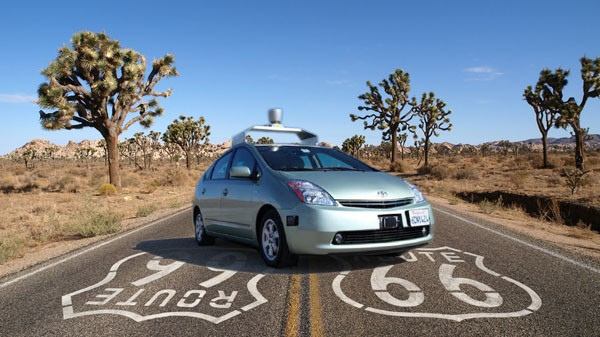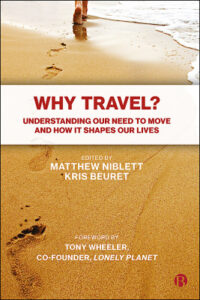Driverless cars gaining momentum: freedom and safety on the roads of the future?
27th March 2015

A Google driverless car. Image credit: google-driverless-cali © Sam Churchill. Licensed under Creative Commons via flickr.
Tesla Motors announced last week that within a few months new software will enable their Model S Sedan cars to ‘go between San Francisco and Seattle without the driver doing anything.’ Tesla are not alone in developing driverless cars, with competition from traditional auto-makers (like Mercedes-Benz, Ford and Nissan) as well as tech companies like Google and Apple. It is claimed that self-driving cars will improve road safety by eliminating human error, cut fuel consumption and reduce traffic congestion. In the UK, the Chancellor announced £100million of investment in the development of driverless cars in this week’s budget and a recent report, commissioned by the Society of Motor Manufacturers and Traders, claims that driverless cars will reduce serious road accidents by 25,000, generate 300,000 jobs and contribute £51bn to the UK economy by 2030. The SMMT report was launched at their Connected and Autonomous Vehicles conference last Thursday, the first such conference in the UK, which featured key-note speeches by the Transport Minister and the Minister for Digital Economy.
The momentum behind driverless cars is clearly growing, but many view the arrival of fully-automated cars on our roads as a way off yet, due to the complexity of regulatory and insurance issues even more than technological ones (see the ITC occasional paper Automated Cars for more on regulatory issues). The prospect of driverless cars also throws up some difficult ethical dilemmas, for example the ‘tunnel problem’: if a child steps out in front of the driverless car and its only options are to swerve into a wall (killing the car passengers) or hit and kill the child, who should programme that decision: the user, the manufacturers, legislators?
The very idea of driverless cars stirs up resistance in some people. Part of this may come from uneasiness about issues of moral responsibility; and for the millions of people employed globally in driving vehicles, the prospect of job losses is clearly worrying. The car has become a symbol of freedom over the past century, and the act of driving itself gives many a great thrill. Already, there is evidence that this association with freedom is declining: a study in 2012 showed that teenagers now prefer a smart phone to a car – virtual mobility replacing physical. It is quite conceivable that our conceptions of freedom will change. The opportunity to use your car-travelling time as you wish, to sleep, read, or browse the internet whilst travelling safely to the doorstep of your destination, instead of keeping eyes and mind firmly on the road ahead, may come to be seen as a greater freedom. And there will likely still be a place in the future for recreational driving for those who find it a thrill. Elon Tusk, CEO of Tesla, suggested that in future human-driven cars would be seen as too dangerous to be legal. This statement met with some furore and Tusk was quick to state that he hoped this never happened. The deep attachment many feel towards driving is clearly still strong: whether this continues into the future remains to be seen.
Travel plays such a central role in our lives and the complexity of issues around the prospect of driverless cars makes it clear that a change in travel technology can have far-reaching impacts. Equally, new technologies will be shaped by not only technical, economic and regulatory factors, but by the cultural and psychological relationships we have with them. The Independent Transport Commission believes that it is vital that we better understand these complex relationships, and the motivations underlying our travel choices; and that such an understanding can and should enable better decision-making and better preparation for the future. The ITC’s Why Travel? Project explores human travel from a variety of perspectives across the arts, humanities and sciences, with the goal of informing better decision-making for the future. For more information on the project, news and expert opinions, see www.whytravel.org


